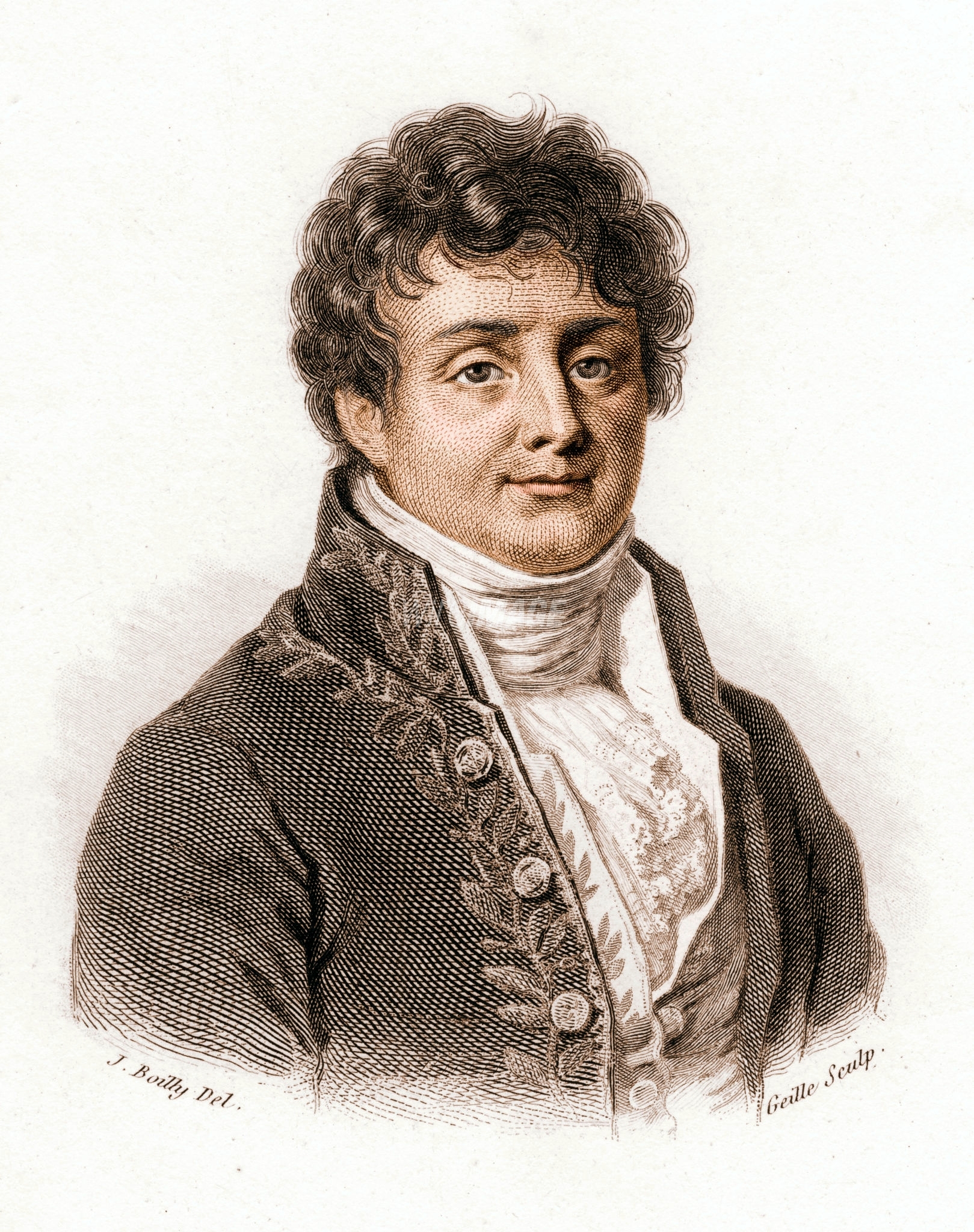“Profound study of nature is the most fertile source of mathematical discoveries.”
Source: The Analytical Theory of Heat (1878), Ch. 1, p. 7
Jean Baptiste Joseph Fourier est un mathématicien et physicien français né le 21 mars 1768 à Auxerre et mort le 16 mars 1830 à Paris. Il est connu pour avoir déterminé, par le calcul, la diffusion de la chaleur en utilisant la décomposition d'une fonction quelconque en une série trigonométrique convergente. De telles fonctions sont appelées séries de Fourier ; la méthode de calcul permettant de façon réversible de passer d'une fonction à la série trigonométrique correspondante est la transformation de Fourier. Cette méthode très féconde est devenue incontournable en théorie du signal, imagerie numérique, compression de données, dans l'exploitation des systèmes 3G, 4G.

“Profound study of nature is the most fertile source of mathematical discoveries.”
Source: The Analytical Theory of Heat (1878), Ch. 1, p. 7
Source: The Analytical Theory of Heat (1878), Ch. 1, p. 6
Contexte: If we consider further the manifold relations of this mathematical theory to civil uses and the technical arts, we shall recognize completely the extent of its applications. It is evident that it includes an entire series of distinct phenomena, and that the study of it cannot be omitted without losing a notable part of the science of nature.
The principles of the theory are derived, as are those of rational mechanics, from a very small number of primary facts, the causes of which are not considered by geometers, but which they admit as the results of common observations confirmed by all experiment.
Preliminary Discourse, p.7 Note: often quoted as Mathematics [or mathematical analysis] compares the most diverse phenomena and discovers the secret analogies that unite them.
The Analytical Theory of Heat (1878)
Source: The Analytical Theory of Heat (1878), Ch. 1, p. 1